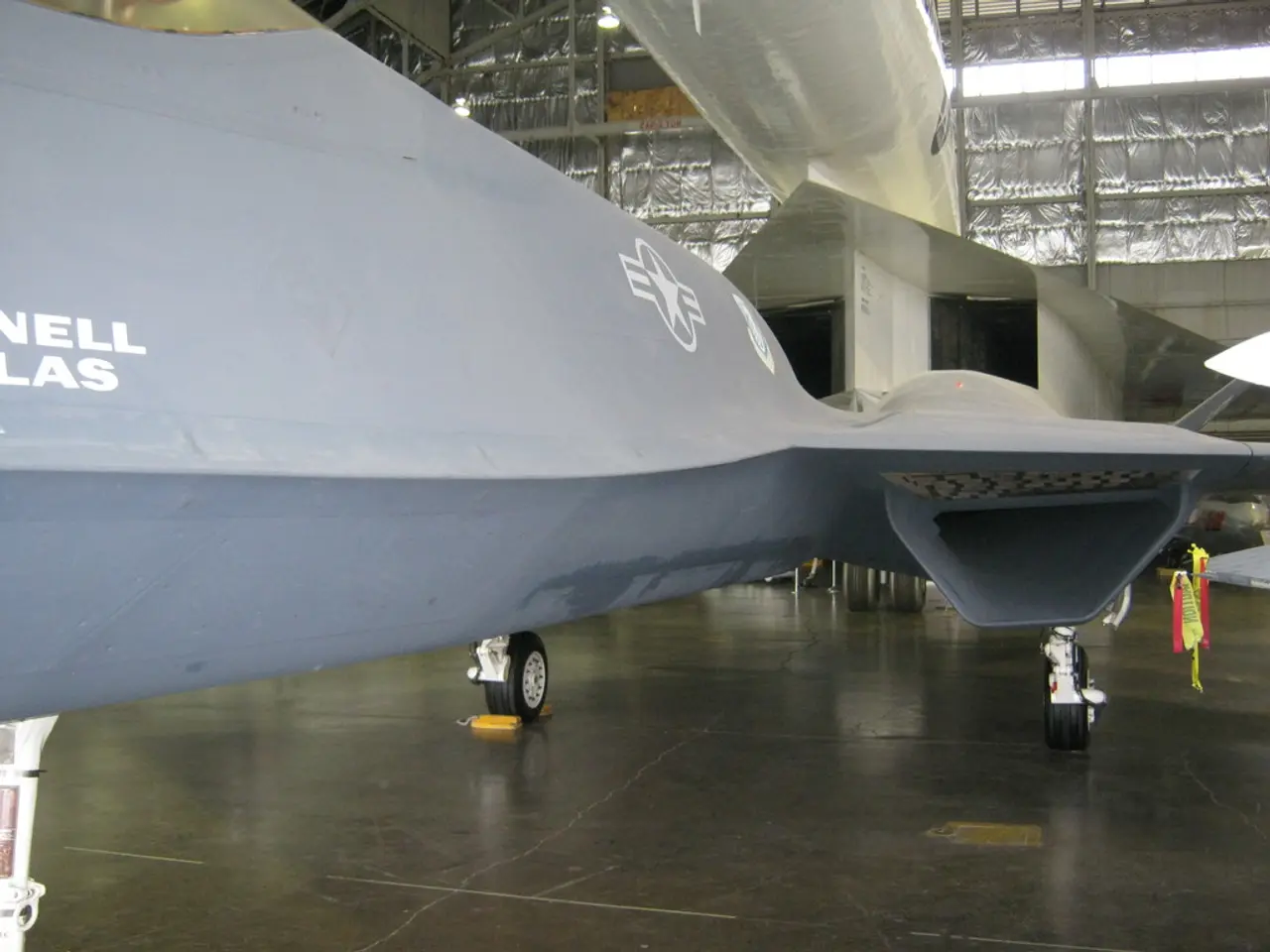Air Canada cabin crew stage a protest at Toronto Pearson airport, hinting at a potential strike set to occur this weekend
In a significant development, the long-standing dispute between Air Canada and its flight attendants, represented by the Canadian Union of Public Employees (CUPE), has come to a temporary resolution. The strike, which had been causing major disruptions to Air Canada's operations since August 18, 2025, has been called off following a tentative agreement reached through mediation.
The root cause of the dispute was the flight attendants' protest against "poverty level wages" and unpaid work time. The union argued that entry-level wages have only increased by about 10% since 2000, while inflation has risen by over 169%. They also demanded compensation for all time spent working, including unpaid pre- and post-flight duties.
The Canada Industrial Relations Board (CIRB) had previously declared the strike unlawful, ordering the union leaders to call off the strike and for flight attendants to return to work. However, the parties have now reached a compromise, allowing Air Canada to gradually resume operations starting August 19, 2025. The airline expects a full return to normal operations over 7 to 10 days, as planes and crew are currently out of position due to the strike and shutdown.
The disruption caused by the strike was substantial. Air Canada and Air Canada Rouge flights were grounded, affecting hundreds of thousands of passengers. The gradual resumption of flights reflects the complexity of restarting a major carrier after a sudden stoppage. For passengers, this means cancelled flights and delays, with limited compensation under Canadian air passenger protection rules during strikes. However, international travelers might be able to claim expenses under the Montreal Convention.
Negotiations between the union and Air Canada have been ongoing since the beginning of the year. The union has identified unpaid work, work rules, and poverty-level wages as key issues in negotiations. The strike could have potentially escalated, but the parties have now reached a tentative agreement.
The union president, Wesley Lesosky, stated that Air Canada can afford to pay its workers fairly. Air Canada flight attendants are estimated to need a wage increase of about 32 to 36 percent to be the best paid in North America. The airline, on the other hand, is focused on reaching a settlement that recognises the contributions of flight attendants and supports the company's competitiveness and growth.
The dispute has highlighted longstanding wage concerns within the airline industry. Many flight attendants live below the poverty line and rely on food banks and shared accommodations. The resolution of this dispute is a step towards addressing these concerns and ensuring fair compensation for the hardworking flight attendants who keep Air Canada's operations running smoothly.
As the dust settles and Air Canada resumes its operations, the focus now shifts to the long-term resolution of these issues and ensuring fairness for all parties involved. The airline industry, like many others, is facing unique challenges in the current economic climate, but it is crucial that the wellbeing and fair treatment of its employees are prioritised.
- The tentative agreement, reached through mediation, may have an impact on future policy-and-legislation concerning the airline industry, as the long-standing dispute between Air Canada and its flight attendants highlighted the need for fair compensation and working conditions.
- The Canadian Union of Public Employees (CUPE) and the government have been closely monitoring the disputes in the media, with the general-news outlets discussing the potential impact on Air Canada's employees and operations, as flight attendants lived below the poverty line and relied on food banks and shared accommodations.
- The resolution of the dispute between Air Canada and the Canadian Union of Public Employees could serve as a catalyst for other airlines in both Canada and neighboring countries to review their wage and work policies, following the lead of Air Canada in addressing longstanding wage concerns within the airline industry.
- As Air Canada resumes its operations after the resolution, the union president, Wesley Lesosky, called on the government to enact policies and legislation that ensure fair compensation for flight attendants and other workers in the aviation sector, emphasizing the importance of prioritizing employee wellbeing in the current economic climate.







